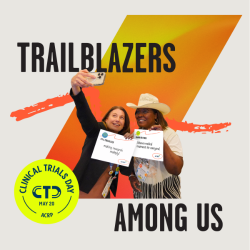The Association of Clinical Research Professionals (ACRP) is excited to announce a landmark article entitled “Now is the time to fix the clinical research workforce crisis,” published this week in the journal Clinical Trials.
Co-authored by ACRP and a number of prominent thought leaders in the field*, the article elevates this critical issue into the realm of the academic literature, taking its cue from a January 2023 article by U.S. Food and Drug Administration (FDA) Commissioner Robert M. Califf entitled: “Now is the time to fix the evidence generation system.”1
ACRP partnered with key authorities from Duke University, The Ohio State University, University of Alabama at Birmingham, The Multi-Regional Clinical Trials Center of Brigham and Women’s Hospital and Harvard, and North Carolina Biotechnology Center, many of whom have been “in the trenches” of the clinical research profession for most of their careers. Collectively, the authors assessed the scale of the problem, reflected on what is at stake, conducted a forensic analysis of the origins and reasons for the crisis, and debated where solutions may lie. This discourse was supported by a deep-dive online and literature search to source hard data for substantiation of key assertions.
Although the escalating crisis within the clinical research workforce has been highlighted via a range of publications, channels, and forums, it has – until now – gained little attention within formal scientific journals. Yet this is exactly where it needs to be heard, because the problem is far bigger than a staffing issue: it ultimately jeopardizes the “engine” of drug and device development at a time when discovery science is its ascendancy.
The article examines the clinical research workforce crisis through a U.S. lens, although the problem is undeniably global and growing steadily worse. It also focuses on site-based clinical research staff, where the problem is most acute. Perhaps the most visible sign is the widening gap between supply and demand for competent staff, leading to burnout, unprecedented turnover rates, and the slow paralysis of patient-facing site teams. Underpinning this is a perfect storm of complex issues, rooted in lack of recognition, identity, infrastructure, and investment.
Focusing on three priority areas, the ACRP’s Partners Advancing the Clinical Research Workforce™, a multi-stakeholder collaborative of clinical research industry leaders, is now working to:
- Build a strong identity for the clinical research profession
- Ensure equitable access across the profession to education, training, and career development
- Drive enterprise-wide adoption of a competency-based approach to hiring entry-level clinical research professionals
Susan Landis, Executive Director of ACRP, comments: “To rebuild a diverse, research-ready, and sustainable clinical research workforce, it is imperative that academia and industry collaborate both at leadership and grassroots levels to address the issues faced by the profession. This global crisis is a shared one. No stakeholder in the development of medicines and other healthcare advances can afford not to play their part in fixing it.”
-
Califf RM. Now is the time to fix the evidence generation system. Clinical Trials. 2023; 20(1):3-12.



